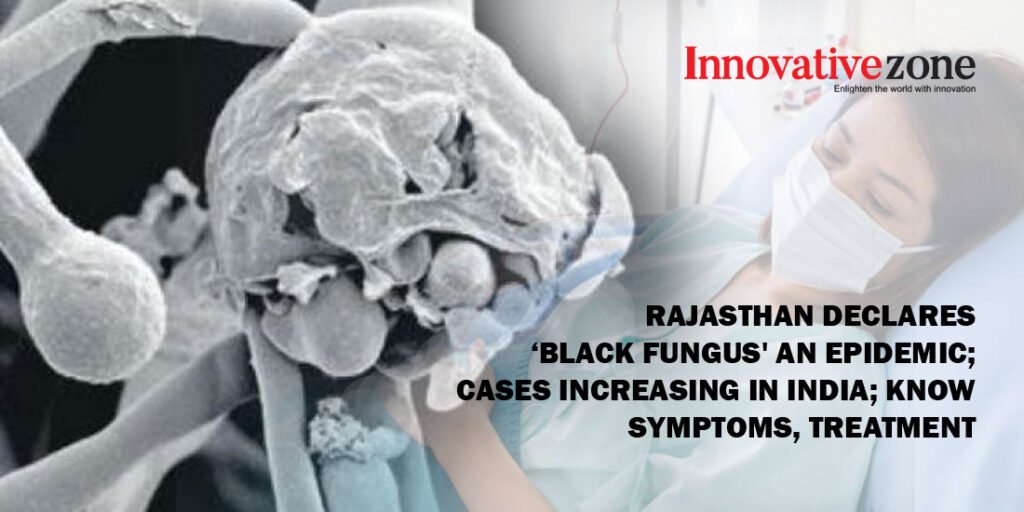Rajasthan declares ‘black fungus’ an epidemic; cases increasing in India; Know Symptoms, treatment
By Sanjay Maurya
Rajasthan declares ‘black fungus’ an epidemic
According to PTI, the Rajasthan government declared black fungus an epidemic on May 19th. According to Rajasthan’s Principal Health Secretary Akhil Arora, the state now has roughly 100 black fungus cases, who are being treated in a special ward at Sawai Man Singh Hospital in Jaipur. The Rajasthan Epidemic Act 2020, which was passed on 19th May, would make “black fungus” a notifiable illness in the state.
The condition, which was first discovered among Covid-19 patients in Gujarat and Maharashtra, has now spread throughout the country. According to ANI, the chairman of the neurology department of the All India Institute of Medical Sciences in Delhi, MV Padma Srivastava, revealed that the disease’s cases had surpassed the three-figure threshold at the hospital.
According to Srivastava, more than 20 cases are recorded every day, and Mucor wards have been set up separately at AIIMS Trauma Centre in Delhi and AIIMS Jhajjar in Haryana. According to the Hindustan Times, the Sir Ganga Ram Hospital in Delhi has seen over 100 cases of black fungus since May 7. Mucormycosis has been diagnosed in 69 individuals who have been admitted to the hospital.
Everything you need to know about Black Fungus
What is Black Fungus?
A fungus called Mucor causes this infection, often known as Mucormycosis. Several states have recently reported occurrences of COVID-induced Mucormycosis, particularly among diabetic individuals.
What are the Symptoms of Black Fungus?
- One-sided facial swelling
- Headache
- Nasal or sinus congestion
- Severe black lesions on the bridge of the nose or the upper interior of the mouth
- Fever
According to Dr. Mohan Nerkar, director of Seven Star Hospital, diabetic and other immunosuppressed patients are more vulnerable to fungal diseases such as Mucormycosis or Black Fungus.
Black Fungus cases in India
According to BBC News, Maharashtra’s health minister stated last week that 1,500 instances of Mucormycosis had been detected in the state, which is the country’s second-most populous after Uttar Pradesh. Similarly, Gujarat state officials recorded roughly 900 cases in the previous month.
Many cases have been recorded across the country, including in Karnataka, Uttarakhand, Telangana, Madhya Pradesh, Andhra Pradesh, Haryana, and Bihar. Andhra Pradesh, Rajasthan, Haryana, and Telangana are among the states that have declared black fungus an epidemic disease.
Treatment of Black Fungus
In India, new cases of Mucormycosis (Black Fungus), a potentially deadly fungal illness, continue to emerge among COVID-19 patients, although many locations are experiencing medicine shortages.
A 4-6-week course of intravenous antifungal medication may be required to cure the infection. Treatment needs a team of microbiologists, internal medicine experts, intensivist neurologists, ENT experts, ophthalmologists, dentists, surgeons, and others because it affects numerous sections of the body.
Shortage of Amphotericin B
Antifungal medicine amphotericin B is used to treat severe fungal infections including leishmaniasis.
On May 18, India’s minister of state for chemicals and fertilizers, Mansukh Mandaviya, announced on Twitter, “We have mapped out a strategy with manufacturers to scale up local production as well as to import the medication from all over the world.” “We’ve already increased Amphotericin B supplies by a factor of ten. However, we are now experiencing a rise in demand “he said.


